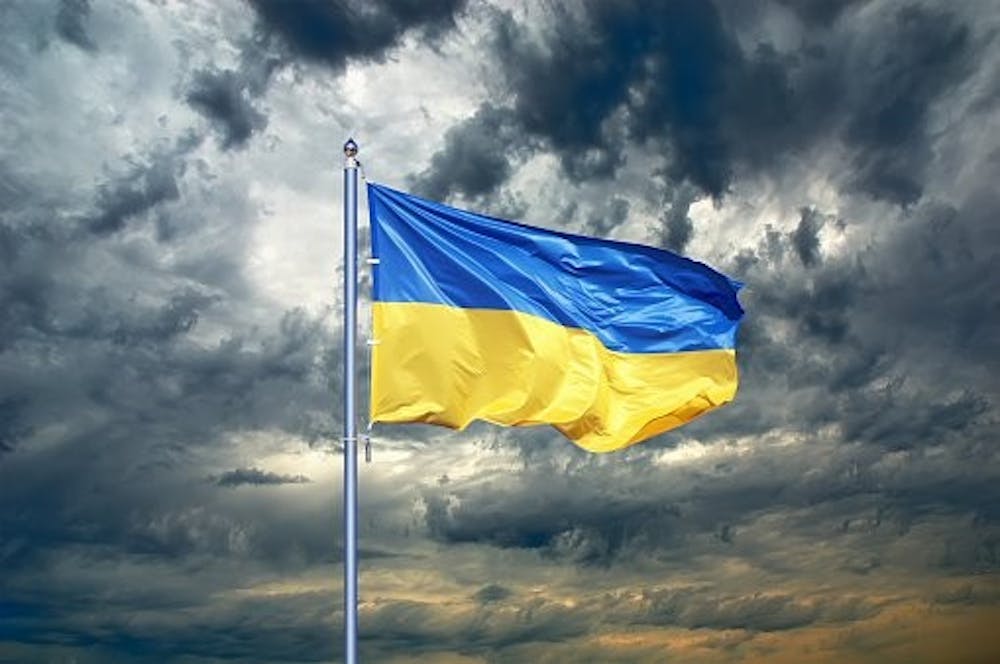As I write this article, the people of Ukraine fear for their lives and the future of their country.
Tonight, some will die. So too will Russian soldiers.
War was not supposed to occur in Europe. Yes, there was the war over Bosnia and Kosovo in the 1990s, but these were wars on the periphery, contained and limited.
What is occurring now is supposed to be a relic of pre-1945 international politics. A superpower state, a permanent member of the United Nations (UN) Security Council responsible for maintaining world peace, is moving vast numbers of men and machines in war against a neighboring state.
For many observers, this war is indeed an anomaly — an aberration — and will fail. Western media is full of language of western cooperation against the attack. Vladimir Putin is called a dictator (which is largely true), and perhaps insane (very likely not true).
The sad reality is that this invasion is not a surprise. This is because Russia has aggressively invaded several former Soviet territories over the past thirty years, most importantly the 2014 annexation of Crimea — an act against a sovereign Ukraine and international law that received limited backlash from the international community.
It is not a surprise because NATO has continued to expand, ignoring Russian demands not to threaten their western border. It is not a surprise because in the midst of these years of aggression and a steadily remilitarizing Russia, Western European states and the U.S. followed a path of weakness. European states failed in their NATO obligations. Germany increased its dependency on Russian gas to satisfy its green agenda, and America showed it was increasingly reluctant to bear the costs of foreign occupations and the advance of liberal norms.
The U.S. retreat from Iraq led to the horrors of ISIS, and the West’s refusal to meaningfully oppose Assad’s slaughter of over 250,000 of his own people opened Syria to mass Russian military engagement. Most recently, the U.S. pulled out of Afghanistan on Sept. 11, 2021, retreating to meet a fixed, symbolic date rather than as a reflection of the situation in Afghanistan itself.
Now, millions of girls no longer have a hope for education and equality, millions are facing starvation and most recently, stories of people selling body parts and even their own children filter out of the country. Selling children.
Can we even contemplate the level of desperation that leads people to do what must be the most unnatural act for a human being? This is the Afghanistan the U.S. left behind after its “glorious” retreat.
To make matters worse, Europe recently signed a massive trade deal with China, and despite some language that is critical of China’s treatment of its Uighur population, neither Europe or the U.S. have taken any meaningful steps to oppose the genocide of an entire people group.
Repeat this to yourself, “the Western world is not doing anything meaningful to oppose genocide.”
Russian attacks are killing Ukrainians. China is eliminating even the hope of a future with its vast sterilization project. Why? Because we rely on China for a life of luxury and comfort.
More recently, President Joe Biden lifted opposition to the Nordstrum 2 gas pipeline which only increases European dependency on Russia and weakens Ukraine. Even in the midst of this war, Russia makes hundreds of millions of dollars every day selling oil and gas to the West.
Unfortunately, the pattern of Western action in the last decade has been one of significant weakness and tolerance for evil. Ukrainian President Volodymyr Zelensky said in response to NATO inaction: "All the people who die, starting today, will also die because of you. Because of your weakness, because of your disconnection."
Is Putin mad for invading? This would appear the most opportune time for Russia to pursue its strategic interests given how the west has shown its reluctance to pay the price for the very international system it established.
Ultimately, what we are seeing is a clash of two very different views of international politics — the liberal and realist, the former based on cooperation and the latter, power. Surely the former is to be privileged? I used to think so, but now that Uighurs die with little opposition, I am not so sure.
Perhaps one positive result of this horrific and illegal invasion by Russia will be that the West finally wakes up to the fact that international law and human rights must be actively defended.
But why is it that Ukrainians and Uighurs must die before we actually take meaningful action?





